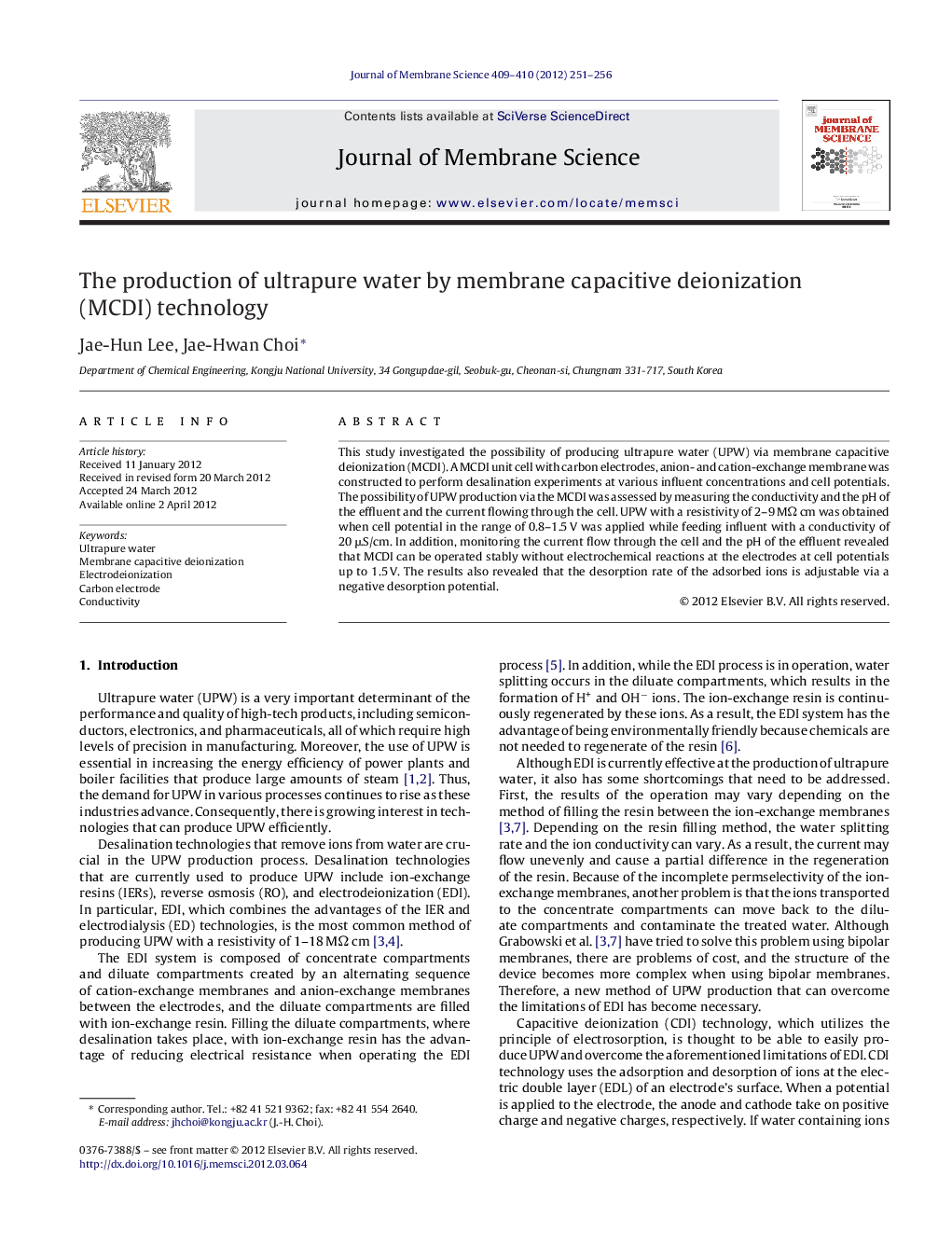| Article ID | Journal | Published Year | Pages | File Type |
|---|---|---|---|---|
| 634943 | Journal of Membrane Science | 2012 | 6 Pages |
This study investigated the possibility of producing ultrapure water (UPW) via membrane capacitive deionization (MCDI). A MCDI unit cell with carbon electrodes, anion- and cation-exchange membrane was constructed to perform desalination experiments at various influent concentrations and cell potentials. The possibility of UPW production via the MCDI was assessed by measuring the conductivity and the pH of the effluent and the current flowing through the cell. UPW with a resistivity of 2–9 MΩ cm was obtained when cell potential in the range of 0.8–1.5 V was applied while feeding influent with a conductivity of 20 μS/cm. In addition, monitoring the current flow through the cell and the pH of the effluent revealed that MCDI can be operated stably without electrochemical reactions at the electrodes at cell potentials up to 1.5 V. The results also revealed that the desorption rate of the adsorbed ions is adjustable via a negative desorption potential.
► Membrane capacitive deionization was applied to produce ultrapure water. ► Ultrapure water of about 10 MΩ cm could be obtained with MCDI technology. ► MCDI was operated stably without electrochemical reactions up to 1.5 V. ► The desorption rate was adjustable via the desorption potential.
